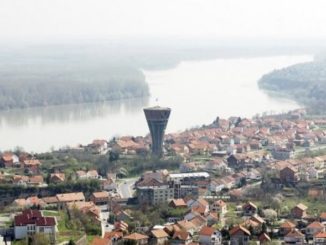
The Hague – The hearing concerning the mutual charges of genocide between Croatia and Serbia held before the International Court of Justice was completed on Tuesday.
The Croatian team replied to Serbian claims by saying that Croatia’s Operation Storm had not been a genocide and asked the court to reject Serbia’s countersuit.
The ICTY decision that acquitted Croatian generals Ante Gotovina and Mladen Markač of war crimes against the Serbs during the operation is itself the end of Serbia’s counterclaim, the Croatian team said.
Serbia has lost faith in its counterclaim judging by the latest statements by the Serbian team, the Croatian team said and criticized Serbia’s claims of excessive artillery attacks on Serb settlements.
Comparisons between Croatian former president Franjo Tuđman and the Nazis and their final solution is inappropriate and does not deserve an answer, the Croatian team said.
Serbia is manipulating with the number of missing in the war, and Croatia presented the only accurate document with those numbers two weeks ago, the Croatian team said.
The list has 1,663 missing people, including Croats, Serbs and others, the team said.
The Serbian team presented data from the NGO Veritas saying that 6,361 Serbs disappeared during the war and that the Serbian government commission for missing persons was still looking for more than 1,700.
According to the UN secretary general’s report from October 18, 1995, 200,000 Serbs fled before the attacks of Croatian forces during Storm in 1995.
Serbs accounted for 4,36 percent of the population according to the 2011 census in Croatia, or three times less than in 1991 when the war started.
Since the hearing is over, the court will reveal on its website the testimonies of witnesses and experts.
Serbia wants the International Court of Justice (ICJ) to declare the Croatian armed forces’ 1995 Operation Storm a genocide against the Serbian people and to find Croatia guilty of violating the UN Convention on the Prevention and Punishment of the Crime of Genocide.
Saša Obradović, Serbia’s agent to the ICJ, said in the country’s closing argument on Friday that Serbia has proved during the pleadings that Croatian authorities acted with “genocidal intent” in an attempt to destroy Krajina Serbs through murders, infliction of serious physical and mental harm and intentional imposition of living conditions aimed at destroying an ethnic group.
He said that Serbia’s counter-claim proposes that an ICJ judgment should hold Croatia liable to provide reparations to the Krajina Serbs for the suffering they had to endure during Operation Storm.
Serbia also wants for the Serbs who have not returned to Croatia to be enabled to freely return to their homes, Obradovic said.
It also proposes that the court orders that Operation Storm, during which a crime of genocide was committed against Serbs from the Krajina region, stops being celebrated as a national holiday in Croatia and that all perpetrators be punished, he said.
Serbia’s legal team argued that the Croatian genocide claim should be dismissed on the ground that Serbia cannot be held responsible for acts committed prior to its creation as a state on April 27, 1992.
Alternatively, if the court finds that it has jurisdiction for the period prior to that date, Croatia’s claim should be rejected on the grounds of being both factually and legally untenable, said Obradović.
He stressed that the Serbian government is fully aware of its obligation to continue the search for missing persons regardless of their nationality or ethnic origin.
Serbia’s legal representatives said that Croatia’s claim against Serbia for genocide against Croats is clearly false and one-sided.
The case started on July 2, 1999, when Croatia filed charges of genocide against Serbia.
Serbia responded in 2010 with a countersuit citing genocide charges during Operation Storm in 1995.
The trial chamber comprises 17 judges, 15 resident and 2 ad hoc judges from Serbia and Croatia.
The final verdict, which cannot be appealed, could be announced by the end of this or early next year and it will be binding to both countries.
Should the court determine that a genocide occurred, the issue of restitution could be raised.



